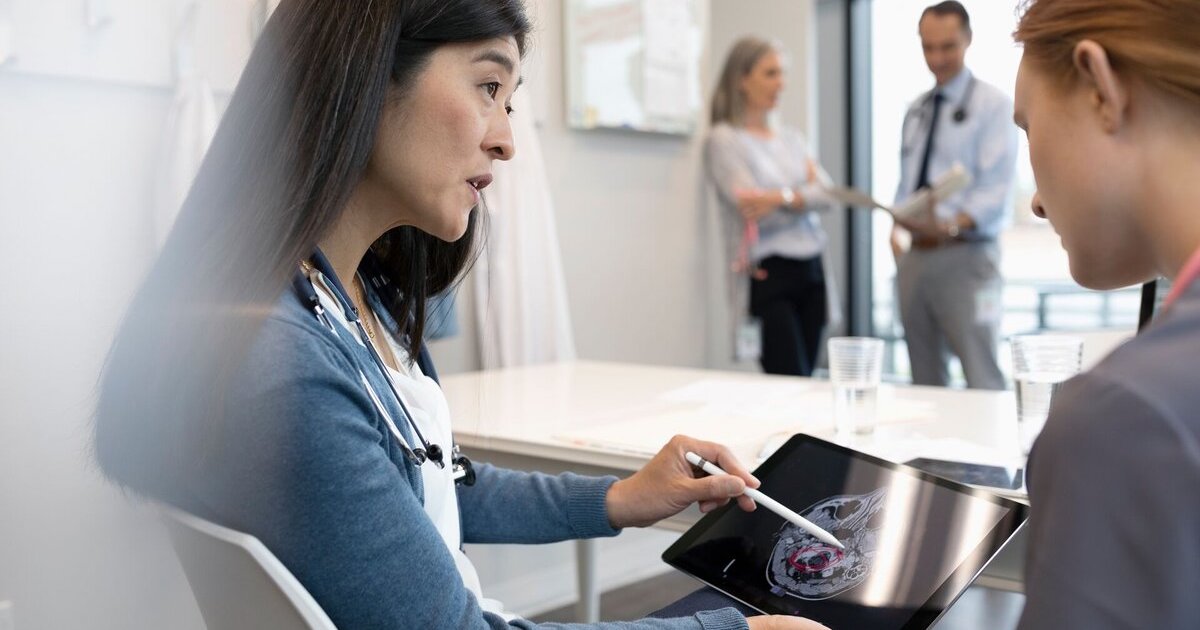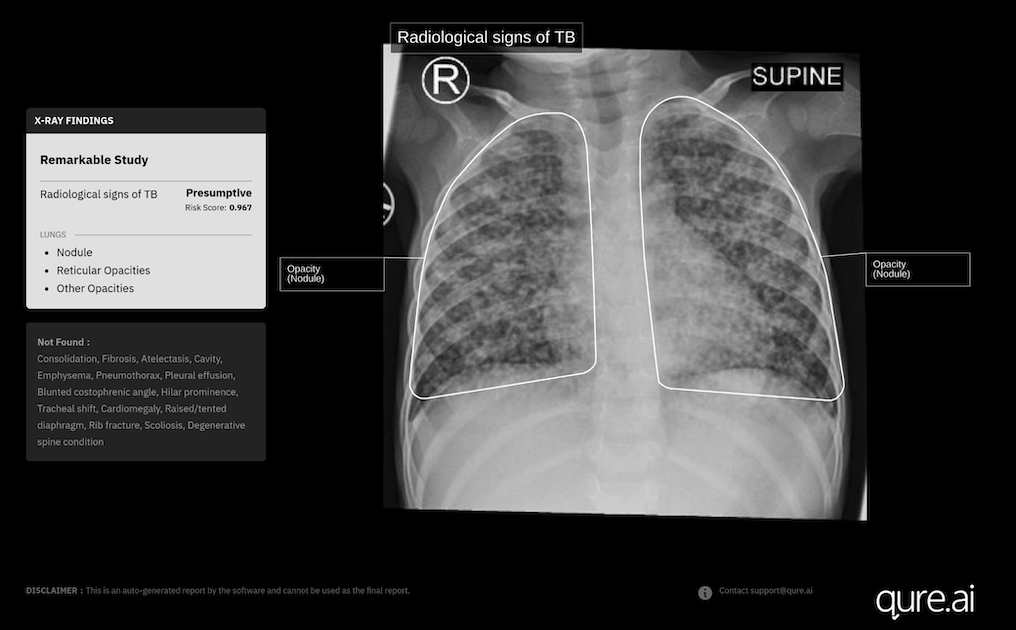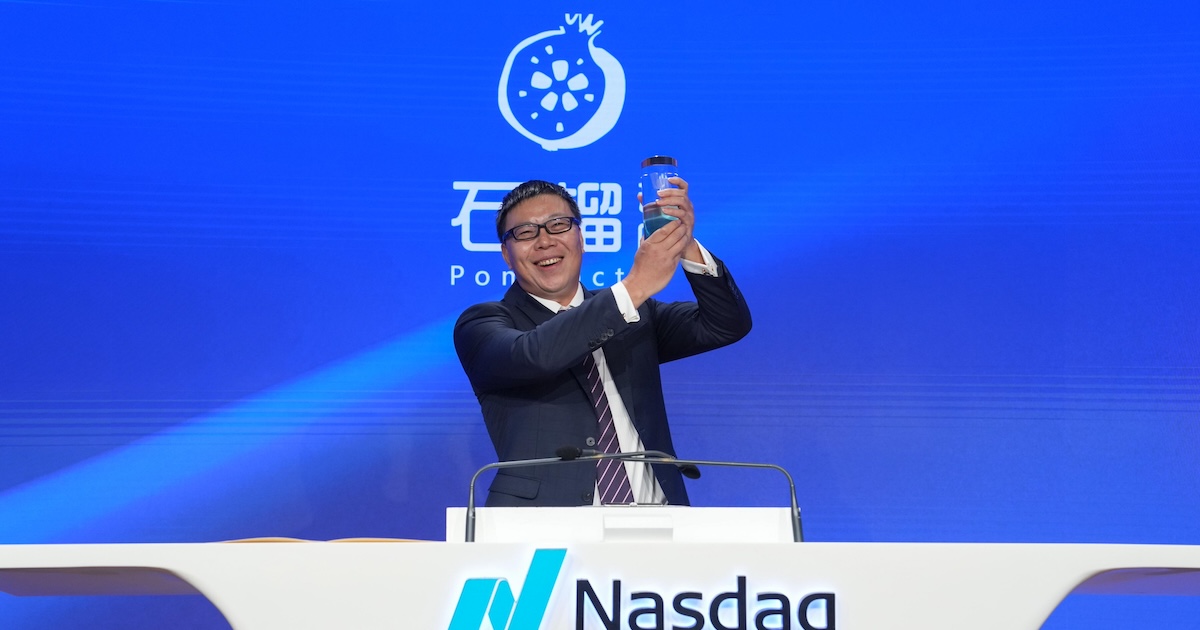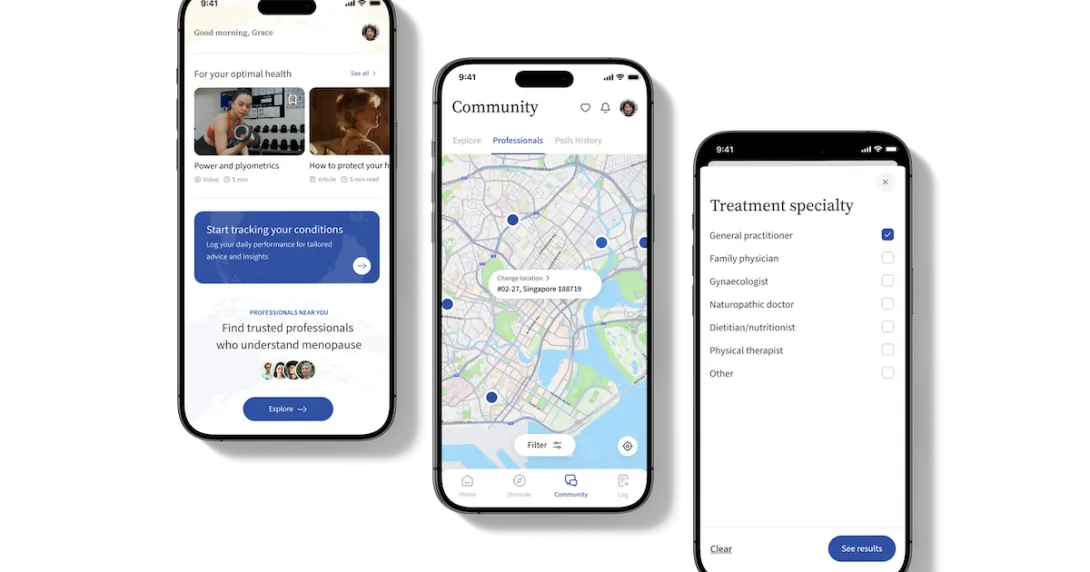
Photo courtesy of Sol
A Singaporean startup looks to address the unmet medical and workplace needs of millions of Asian women who go through midlife through its new mobile menopause application.
Across much of Asia, menopause remains an understudied ageing stage, with stigma and limited clinical data leaving women unsupported in both healthcare and the workplace.
Sol seeks to bridge that gap through evidence-based guidance, culturally sensitive education, and partnerships with clinicians designed to make midlife care more visible and inclusive.
Available for free on the Apple App Store, Sol features a symptom tracker with interpretive guidance, a three-level scorecard for treatment options, personalised wellness plans, and region-specific resources for both users and employers, with an Android version to follow.
The startup was founded by Grace Oh, a former high-profile analyst who left a long career in finance after repeated misdiagnoses and dismissive care experiences revealed how little attention women's health beyond fertility receives.
Oh spoke with Mobihealth News about the personal frustrations that led her to build Sol, the cultural and clinical blind spots shaping menopause care in Asia, and how she plans to expand the app's reach and evidence base across the region.
Q. In public, you’ve talked about being "misunderstood and misdiagnosed" before founding Sol. Could you tell us more about that personal experience? What moment or frustration pushed you to build a menopause app instead of continuing your corporate career?
A. My frustration stemmed from decades of being told what "success" should look like for a woman. From age nine to 19, I pursued classical music to fulfil parental expectations. Later, after finally finding my own path, I stepped back from a rewarding career at Citigroup and CLSA – where I was ranked among Asia's Top 10 analysts by the Financial Times – to support my husband's career.
At some point, I realised I had spent nearly half my life living by someone else's script. It was time to change that, not just for myself, but for other women too.
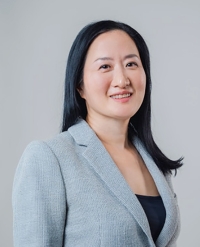
Founder
Sol
In healthcare settings, I often felt misunderstood or dismissed. During a routine check-up, a doctor asked, "How are things?" I replied lightly, "Life could be better," referring to the stress of moving from Seoul to New York to Hong Kong for my husband's work. Without a moment's pause, the doctor said, "Would you like an antidepressant?" There were no follow-up questions, no curiosity, and no attempt to understand.
That moment stayed with me. I did more research on women's health and discovered a deeper, systemic void: how little research and attention there is on women's health beyond fertility and gynaecological conditions. Menopause, Alzheimer's, autoimmune diseases, and cardiovascular conditions – issues that disproportionately affect women – remain under-studied and under-addressed. In addition, Asian women are vastly underrepresented in clinical research.
Sol was born from that awakening: a mission to help women reclaim their time, identity, and health. It represents a new model of care for women in Asia, backed by science and built with empathy.
But more than a platform, Sol is a movement to help women regain control, confidence, and vitality in a life stage that deserves visibility, not silence.
Q. Sol positions itself as an app "for women in Asia." From your perspective, what are the unique challenges or cultural attitudes toward menopause in Asian societies that global solutions have often failed to address?
A. Across many Asian societies, menopause remains a private, even shameful, topic. Women are expected to "endure quietly," often prioritising family or work over their own well-being. Conversations about hormonal health are rare, and stigma around ageing, mood changes, and sexuality runs deep. As a result, symptoms are frequently normalised or dismissed, both socially and medically.
Global solutions often miss this context. Many are built around Western research, norms, and communication styles that don't always resonate here. They may emphasise hormone therapy without considering how cultural beliefs, taboos, or access barriers shape care-seeking behaviour among Asian women. They also overlook differences in diet, body composition, genetics, and doctor-patient dynamics that influence how women experience and manage menopause.
Most existing research on women's health is based on data from Western populations, yet we know the age of menopause, symptom profiles, and disease risks vary significantly by ethnicity and region.
Sol was created to bridge that gap – combining science with cultural empathy. We localise evidence, language, and care pathways across Asia so women feel seen, understood, and supported in ways that honour both their biology and their lived realities. Through collaborations with universities and research institutions, we aim to expand the evidence base and deepen the understanding of women's health in Asia.
Q. Many existing menopause apps focus on symptom tracking or hormone therapy guidance. What gaps did you see in those models that Sol specifically set out to fill?
A. Most menopause apps today focus narrowly on symptom tracking or hormone therapy guidance. While helpful, those models often treat menopause as a clinical event to be managed, not a multidimensional life stage to be understood.
Medically, many existing tools rarely integrate the diverse approaches that women in Asia already use – from nutrition and movement to traditional remedies and mind-body practices.
Culturally, there's little sensitivity to how women in Asia experience and talk about menopause. Stigma, modesty, and differences in healthcare systems mean that simply localising Western content isn't enough. Sol adapts evidence, language, and context, so women feel seen, understood, and represented.
At Sol, we bring together the best of conventional medicine, lifestyle medicine, and complementary therapies, giving women practical, evidence-based choices they can confidently apply in daily life. Our approach helps women not only track symptoms but also interpret them, take action, and find care pathways that truly fit their needs and culture.
Q. How did you involve real women in shaping Sol's design, tone, and features, especially to ensure it reflects lived experiences across such a diverse region?
A. From the start, Sol was built with women. We involved hundreds of women across Asia through interviews, surveys, and community events to understand not only their symptoms, but also their emotions, barriers to care, and everyday experiences.
Many told us they felt invisible in the healthcare system or uncomfortable discussing menopause openly. Others shared how cultural norms, family expectations, or workplace pressures shaped how they managed their health. These insights shaped everything, from Sol's tone of voice to how we present information that feels relatable.
While the app is currently in English, we're working with doctors and experts across Asia to localise content for each market, ensuring that the science, language, and cultural context truly reflect women's lived experiences.
We also co-designed features with women: testing symptom trackers, treatment-rating visuals, and educational flows to make sure they were intuitive, inclusive, and practical. Our monthly Flash Connect meet-ups and the Flash Forward conference continue this feedback loop – real women and experts guiding how Sol evolves.
Ultimately, Sol reflects the lived experience of women across Asia: diverse, resilient, and ready to be heard.
Q. What has the early response been from employers in Asia, and what kind of corporate partnerships or pilots are currently in place?
A. We're still in the early stages of engaging employers, but the response so far has been very encouraging. Many HR leaders and organisations across Asia are beginning to recognise menopause as a key part of women's health, wellbeing, and talent retention, especially as more women remain in the workforce through midlife.
Right now, we're developing pilot programs that combine evidence-based learning, medically reviewed guidance, and practical tools through the Sol platform. These early partnerships are helping shape our upcoming corporate wellbeing offering, which will include workshops, seminars, and workplace guidance.
It's early, but the momentum is clear: employers see that supporting women's midlife health isn't just a wellbeing issue; it's a leadership and inclusion opportunity.
Q. Looking ahead, how do you see Sol evolving: will it expand to other life-stage health areas, integrate with healthcare systems, or grow beyond Asia to other regions facing similar cultural gaps in women’s health?
A. Our focus right now is on building depth, creating the most trusted, evidence-based menopause and midlife health platform for women in Asia. But the long-term vision extends beyond menopause because this stage represents a critical intervention window for preventing serious chronic diseases.
We see Sol evolving into a broader longevity and well-ageing platform, supporting women as they transition from midlife into their healthiest, most empowered years. That means expanding into areas such as preventive health, metabolic and brain health, and lifestyle medicine for healthy ageing.
We're also exploring collaborations with healthcare systems, clinics, and research institutions to make integrated care more accessible.
And while Asia is our foundation, many of the cultural and clinical gaps we address exist globally. Over time, we aim to bring Sol's culturally attuned, multidisciplinary model to other regions where women's health remains underserved.
Ultimately, our mission is universal: to help women age with confidence, vitality, and purpose.
_
Editor's note: Grace Oh's responses have been edited for clarity and brevity.
